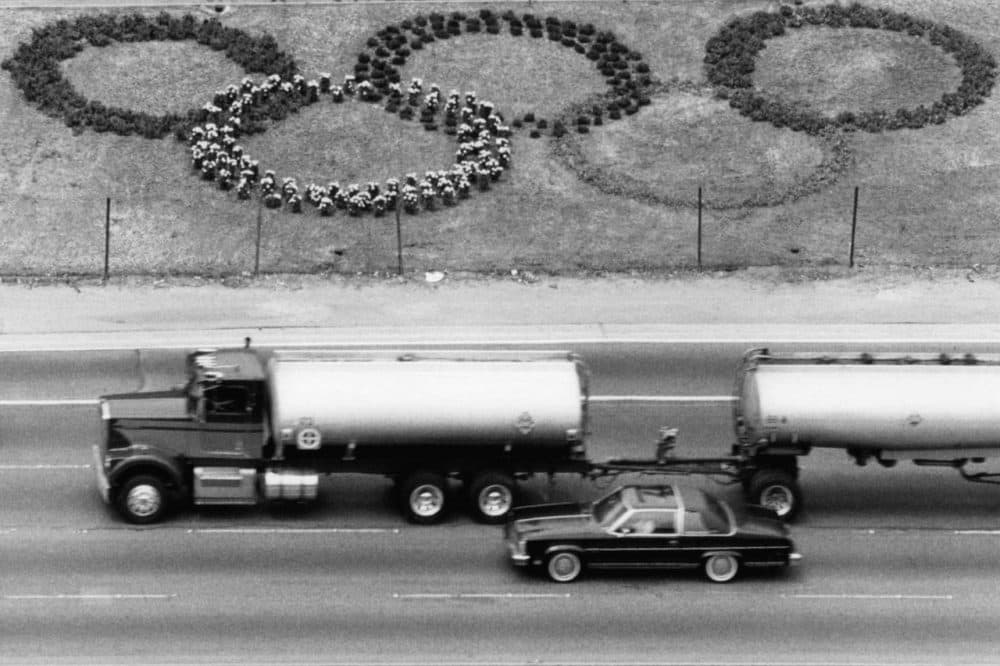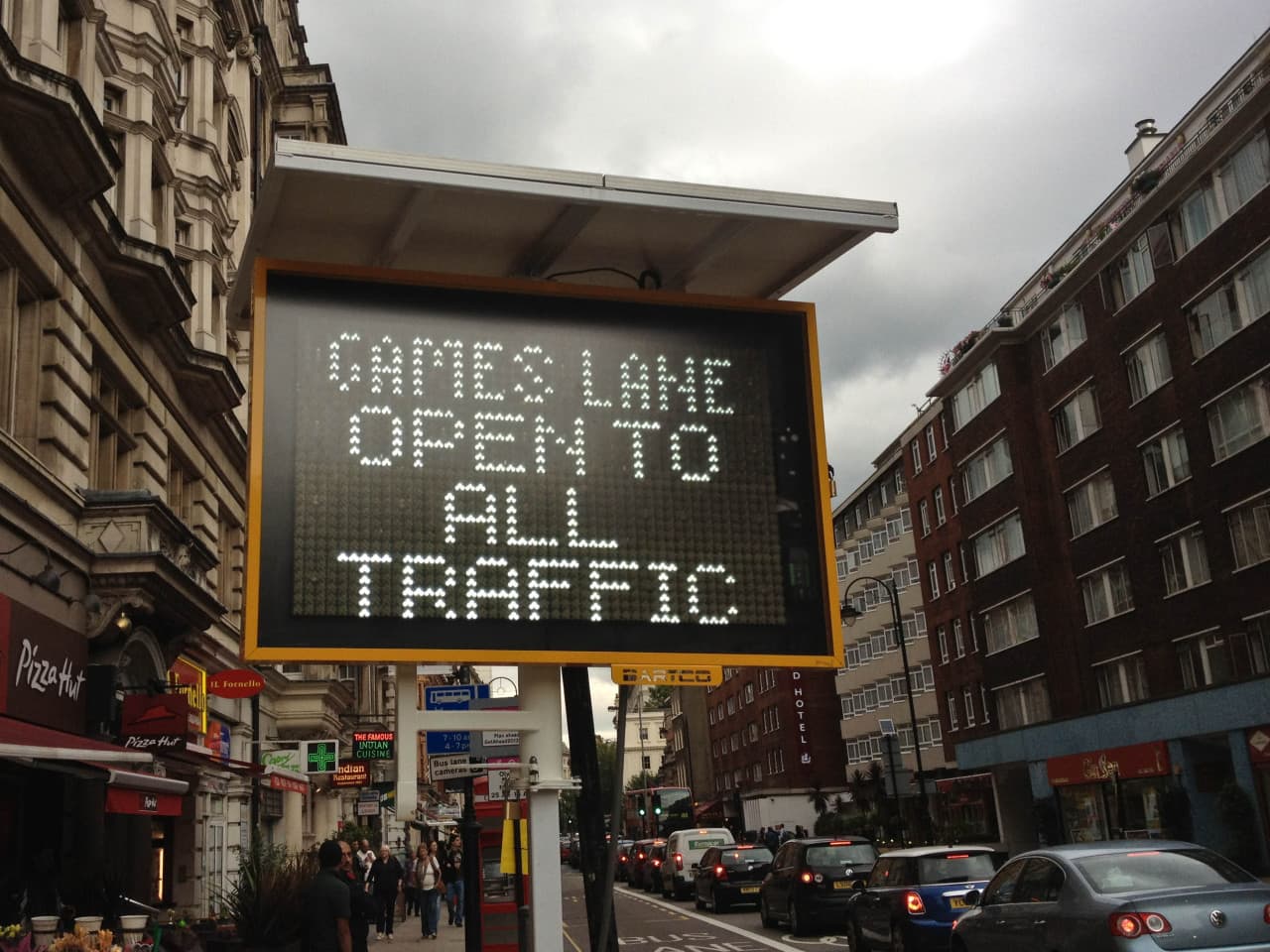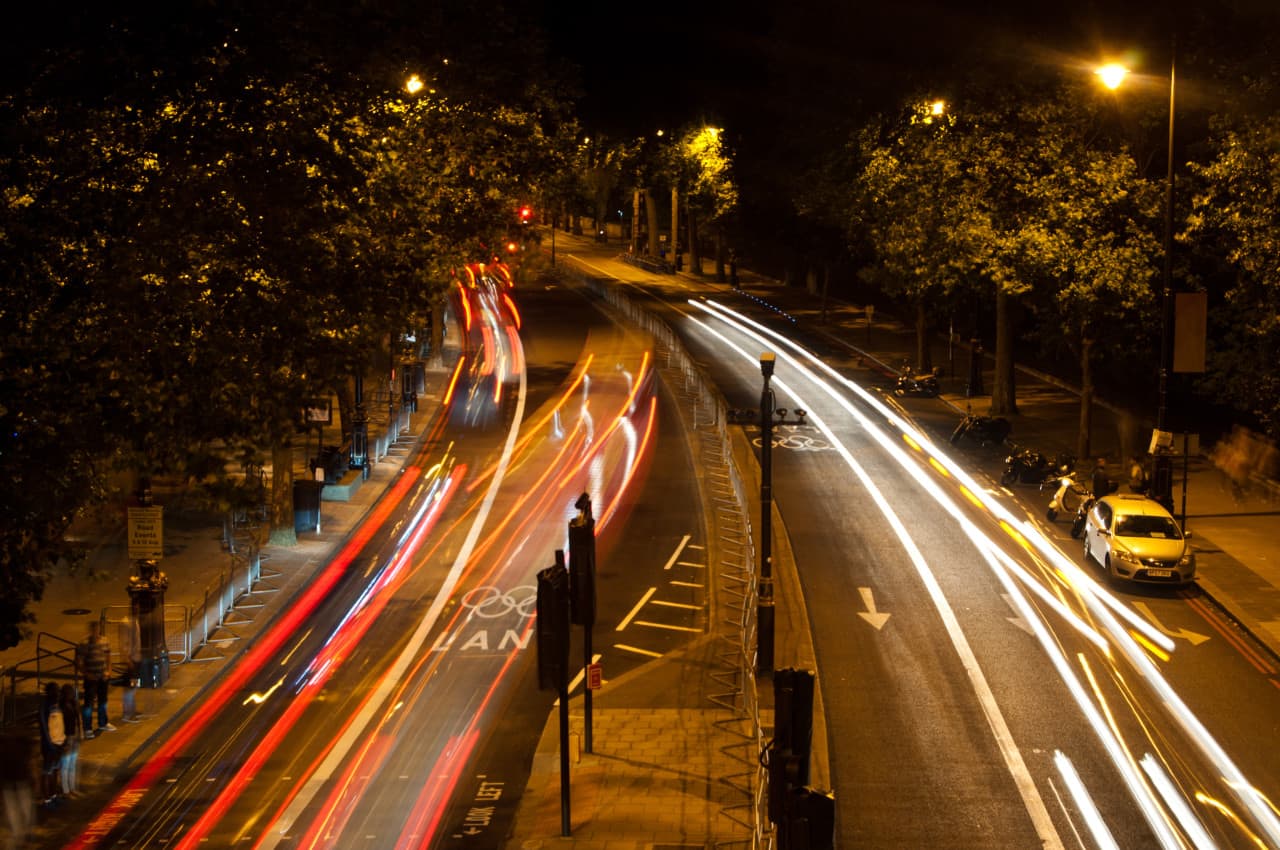Advertisement
Why Boston Traffic Could Get Better During The Olympics
Resume
You might be one of the many Bostonians already getting heartburn about traffic 10 years from now. Traffic was the first thing that came to mind to many right after the USOC chose Boston as its pick to host the 2024 Summer Olympic Games:
I am already stuck in traffic for the 2024 Boston Olympics.— Steve Rushin (@SteveRushin) January 8, 2015
At a meeting last week of the opposition group No Boston Olympics, Monica Bowen said that in 2024, all of Boston will be like the mess around Fenway Park during Red Sox games.
"It’s gonna be chaos," Bowen said. "And that’s just speaking about transportation."
Chaos is exactly what people in Los Angeles were afraid of when they hosted the Summer Games in 1984. Everyone drives there. LA’s interwoven highways have long been legendary for bumper-to-bumper traffic.
Except for during the Olympics.
"It was just remarkable about how cool it was," remembered Ted Vollmer, who was then a metro reporter for The Los Angeles Times. "I had lived in Los Angeles for about 20 years and I had never ever seen it like that."
In the run-up to the Olympics, his own newspaper was scaring readers with words like “Carmageddon.” But the opposite happened. Archive photos show rush-hour traffic disappeared and traffic jams vanished. Vollmer says you could fly down the 405 like it was an empty country road.
"Everybody was obviously elated," Vollmer said, still almost in disbelief. "You know, they were cheering. Everybody had grins on their face when they came into work."
So what happened?
Well, years of planning happened. City officials encouraged carpooling and bus-riding. They made two-way streets into one-way speedways. Telephone hotlines kept people informed. Employers gave workers flex hours. And shippers scheduled all truck deliveries for nighttime.
Vollmer said collectively those small reductions had a huge impact, "which was enough to go from about 10 miles an hour to free-flow at 65 or 70."
Traffic on the busiest day of the Olympics, which everybody had been calling “Black Friday,” was so light commuters named it “Good Friday.”

Not every Olympic host city has been able to copy LA’s traffic miracle. In 2012, London added special road lanes for Olympics traffic, but there was confusion over when the public could use them. And every city’s different.
One clue may come from Boston hosting the Democratic National Convention in 2004.
"There was a lot of people predicting gridlock and mayhem, and we didn’t see that," said Tom Tinlin, who co-chaired the transportation committee for the DNC. Now, he's chief operating officer of the highway division of MassDOT. Back in 2004, he was Boston’s transportation commissioner.
Due to security around the Fleet Center (as it was then called), his team had to close I-93 in both directions. But thanks to advance notice, that did not lead to massive traffic jams like those last week when protesters blocked that same highway.
"What you do is you provide information to people so they can better plan their day," Tinlin said.
People got the message. They came to work earlier or later. Others used ferries and water taxis. Some took vacation that week. Many worked from home. Those same strategies, Tinlin said, would work even better today, now that people have social media, traffic apps and smartphones.
"You know in the summertime," Tinlin asked rhetorically, "how often do you send somebody an email, and you get a response from somebody’s iPhone, and they might be sitting on a beach in Falmouth? The ability to work around large-scale events is easier now probably than ever before, but not as easy as it’s going to be in 2024."
Back in 1984, Olympics traffic turned out to be a breeze. Vollmer said Angelenos were hoping to keep a good thing going.
"And it didn’t," Vollmer said, laughing. "The day after the Olympics ended, the rush-hour traffic went back to bumper-to-bumper. As one transportation official put it at the time: ‘The party’s over.’ "
If Los Angeles is any example, driving during the Summer Games in Boston doesn’t have to become its own Olympic sport.

This segment aired on January 20, 2015.
